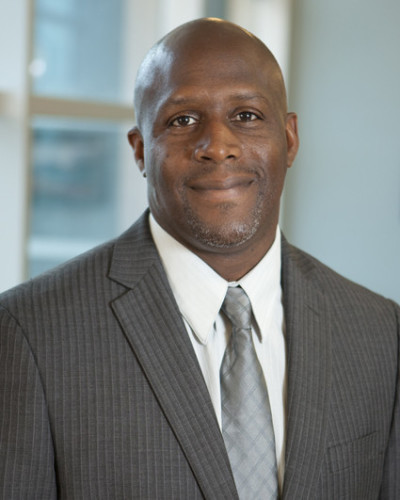Much of Edwards’ early career was spent acting as an advocate and mentor for the young people in his community, particularly those who were dealing with the juvenile court system and considered to be at-risk. He was a strong proponent for those with mental health conditions. This passion continued throughout his time at the Johnson Center, as he was heavily involved in a number of projects concerning these issues. Edwards was a member of the executive team for the First Steps project in Kent County, which seeks to strengthen and coordinate early childhood services. He also was involved in the creation of a Juvenile Justice Vision 20/20 unit at GVSU, a member of the Association of Black Foundation Executives, and a board member for the Grand Rapids Public Library. In 2014, the Grand Rapids Urban League awarded him their highest honor, the Drum Major Award, thanks to his leadership in the topics of “social justice, diversity, changing systems, and providing opportunities for people to achieve their dreams”.
“I think it’s a learning process for communities. I think it’s building trust, building relationships, understanding that it may not be perfect, and just because it’s not perfect doesn’t mean we don’t do it. It’s that kind of understanding. It is also an understanding that everybody is committing their time. Nobody has to be here at this meeting. This is in addition to their jobs. The fact that everybody was there, a common understanding.”
While director of CRI and as executive director of the Johnson Center, Edwards took a leadership role in many different projects at the local, state, and national levels. Edwards assisted in, and directed the creation of, CRI’s MAPAS tool — an interactive mapping and data application tool that makes local, state, and federal data including demographics, birth statistics, and crime statistics more accessible for foundations, nonprofit groups, government, and citizens. Edwards worked on B2B, a collaborative effort that uses grants and strategies to close the educational achievement gap in Grand Rapids, Michigan, and to encourage communities to take action in the support of children’s education. Edwards helped lead the implementation of this comprehensive foundation-funded program. This work required complex participant tracking, multi-institution collaboration, and sophisticated data management.
Nationally, Edwards served as board member and board secretary for the Nonprofit Academic Centers Council, as member of the leadership team for the Arizona-Indiana-Michigan Alliance, and worked with Leadership 18 (an organization of high-level executives who use their joint leverage to attempt to solve critical human development issues) in an advisory role.
“It is interesting because I get a couple of responses when I talk about being from Michigan. One is ‘Oh, you guys are great, you have this figured out,’ and the other is ‘Oh, not Michigan again. Another one from Michigan.’ So I think even in those begrudging comments, people are acknowledging Michigan as a leader in the sector. Not just in the amount of programs and the quality of the programs, but I think genuinely trying to contribute to the national dialogue and make things better across the country, not that we are just focused on Michigan. That’s what I hear, so when I hear people talking about Kyle Caldwell, Rob Collier, Dottie Johnson, or Kathy Agard, that’s the spirit that they’re talking about. These are people who worked in Michigan but were concerned about the sector.”
Edwards retired in 2014 due to illness and passed away in 2016.








